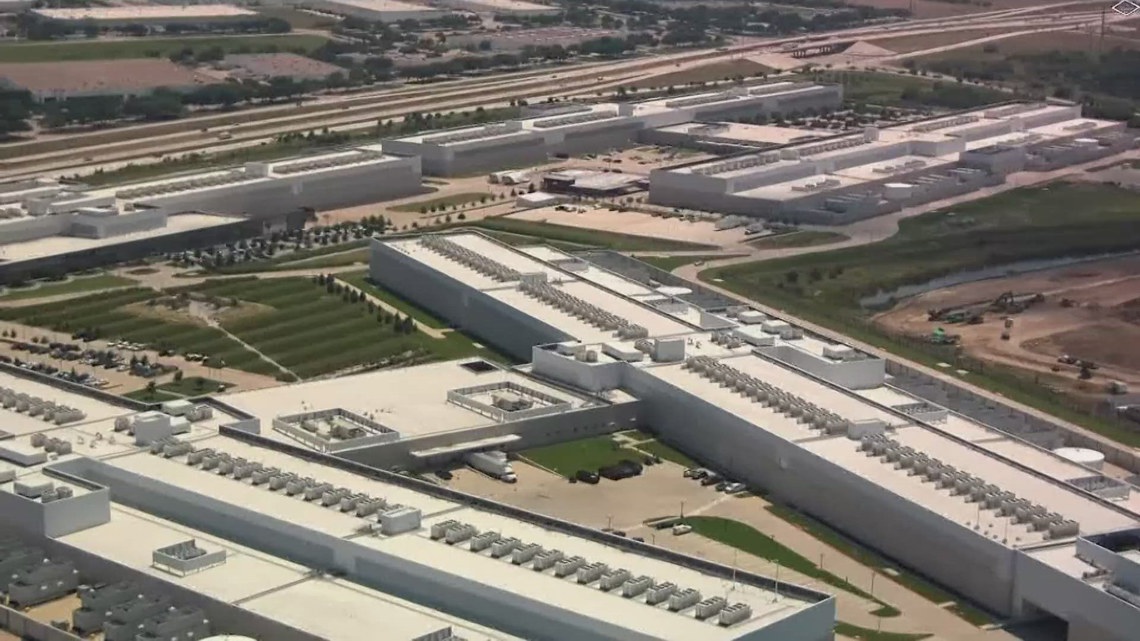
Texas lawmakers change tune on bitcoin mining amid grid concerns

Few states or countries were more welcoming to cryptocurrency miners than Texas. Now, lawmakers are expressing more skepticism.
DALLAS — Texas has long embraced the cryptocurrency mining industry, even taking steps to incentivize the operation.
Sen. Ted Cruz has called the state “an oasis for Bitcoin mining.” Gov. Greg Abbott began accepting campaign donations in Bitcoin in 2015 when a single coin sold for about $250. Today, the cryptocurrency is worth $66,000 per token.
But, in a departure from recent tradition, some lawmakers this week expressed skepticism about cryptocurrency’s societal value during a Senate committee meeting.
“We were a little bit surprised by the tone and tenor of the committee hearing,” said Lee Bratcher, president of the Texas Blockchain Council which advocates on behalf of the cryptocurrency industry.
The Senate Committee on Business and Commerce Wednesday heard hours of testimony on cryptocurrency mining’s impact to Texas’ power grid. The topic is among those Lt. Gov. Dan Patrick asked senators to research between legislative sessions.
The meeting comes two months after ERCOT, the state’s grid operator, published a new forecast for energy demand.
In 2023, ERCOT predicted usage would soar to 110 gigawatts by 2030. In 2024, ERCOT predicts usage will soar to 152 gigawatts by 2030.
The current demand record, set in August 2023, is about 85 gigawatts.
“That’s effectively almost doubling the peak demand of the ERCOT grid in about six years,” ERCOT CEO Pablo Vegas told committee members.
The numbers should be taken with a grain of salt. Some proposed projects that have driven up the demand forecast will not come to fruition, and ERCOT expects to add significant electricity supply in the same time frame.
Even if demand does not balloon in the forecasted manner, energy analysts say there will be massive growth that requires new generation capacity.
Vegas told the committee supercomputers mining cryptocurrency, storing data and contributing to artificial intelligence will account for about half of the forecasted demand increase. A single “AI Google search” requires between ten and 30 times more energy than a traditional Google search, Vegas added.
“Texans will ultimately pay the price,” Patrick said in a statement. “I’m more interested in building the grid to service customers in their homes, apartments, and normal businesses and keeping costs as low as possible for them instead of for very niche industries that have massive power demands and produce few jobs.”
Lawmakers Wednesday focused their discussion on cryptocurrency mining, only occasionally mentioning data centers and artificial intelligence. Those facilities pose a unique problem they will need to account for: unlike cryptocurrency mines, data centers and AI supercomputers cannot “ramp down” operations during times of peak electricity demand.
Cryptocurrency miners in Texas now account for about 2.6 gigawatts of demand, enough to power the city of Austin. When grid conditions tighten, that demand typically drops to around 200 megawatts, an ERCOT official told the council.
Bratcher said about two-thirds of cryptocurrency operations reduce electricity consumption on their own during tight days to save money.
But Texas pays other miners to ramp down and free up electricity, a deal the state does not directly extend to homeowners and other small consumers. Patrick noted that cryptocurrency operations can earn more money by slowing operations during periods of scarce electricity supply than by mining Bitcoin.
“Why is it that the cryptocurrency miners get such a sweetheart deal when we were here first?” asked energy economist Ed Hirs.
“The cryptocurrency miners operate as a parasitic load,” Hirs continued. “They’re the tapeworms of the ERCOT grid.”
The 2030 demand forecast envisions cryptocurrency mining will account for about 11 gigawatts, about 7% of the 152 gigawatt demand prediction.
Most debate on the issue can be boiled down to whether a person believes cryptocurrency offers value to society.
Bratcher argues people who do not believe in Bitcoin can still appreciate the mining operations because they’re “soaking up excess energy, particularly in West Texas, where we have more energy than demand.”
“They’re also soaking up energy off-hours, overnight and in shoulder months… when we actually need additional demand to incentivize more generation,” he continued.
Abbott has echoed that sentiment, arguing the mining operations’ consistent demand might encourage companies to build more power plants and lure them into Texas’s electricity market. In theory, the cryptocurrency mines could reduce demand during peak times and those new power plants would continue generating electricity for other uses.
But Texas’ electricity demand will skyrocket, even if all Bitcoin mining is halted, because the state’s population is rapidly growing.
Lawmakers signaled their intent to return to the cryptocurrency issue when the legislature reconvenes.
“I’m not sure how the legislature is going to deal with it,” Hirs said. “Can you put the genie back in the bottle?”




